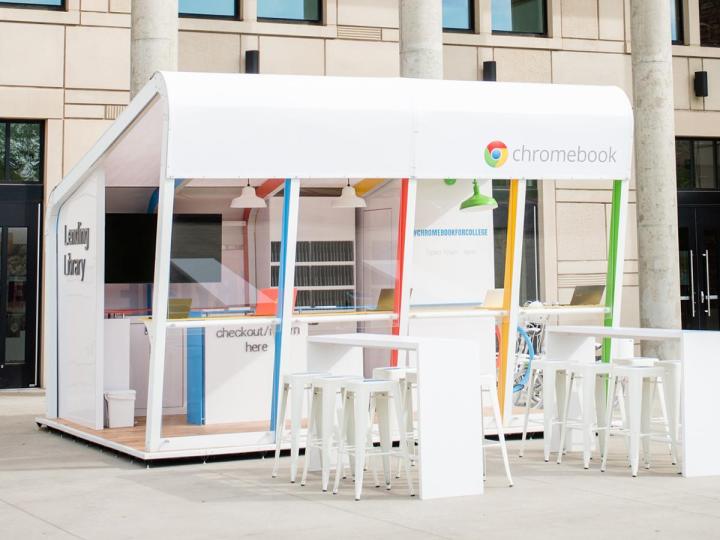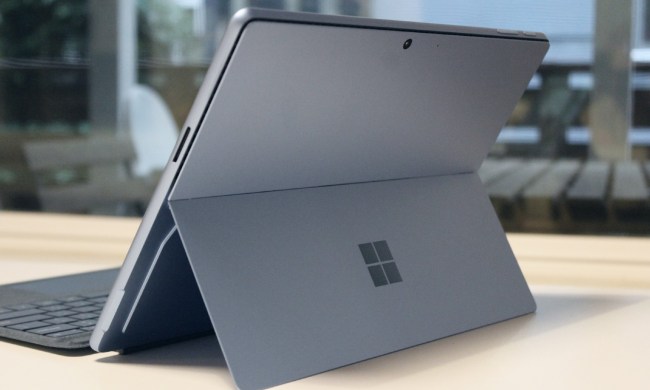
Google says 12 campuses will get pop-up lending kiosks, though only 10 are currently listed on its help page: Auburn University, ASU, GW, Central Florida, Penn State University, Syracuse at Walnut Park, Texas State University, Texas A&M, UCLA, and University of Colorado Boulder. The kiosks will only be in place for a short time, and you’ll need to return your Chromebook before the Google staff pack up and leave.
Related: Android apps like Vine, Evernote, others arrive on Chromebooks, Google says
“The Chromebook Lending Library is traveling to 12 college campuses across the U.S. loaded with the latest Chromebooks,” explains Lindsay Rumer of the Chrome Marketing team. “The Lending Library is a bit like your traditional library, but instead of books, we’re letting students borrow Chromebooks (no library card needed). Students can use a Chromebook during the week for life on campus — whether it’s in class, during an all-nighter, or browsing the internet in their dorm.”
For Google it’s a way to get students hooked on its lightweight operating system before they pay out for a laptop of their own. Chrome OS is certainly well suited to the lending scheme — everything is stored in the cloud and you can switch from one Chromebook to another with nothing more than your Google username and password.
With Android apps appearing on Chromebooks and new models hitting store shelves it looks like Google is ready to give its online operating system another push. “With Google Maps, Drive, and Gmail, important information is stored in the cloud, so students no longer need to worry about losing documents, pics, music, and more,” concludes the blog post announcing the lending library. “The days of losing a paper are over!”


